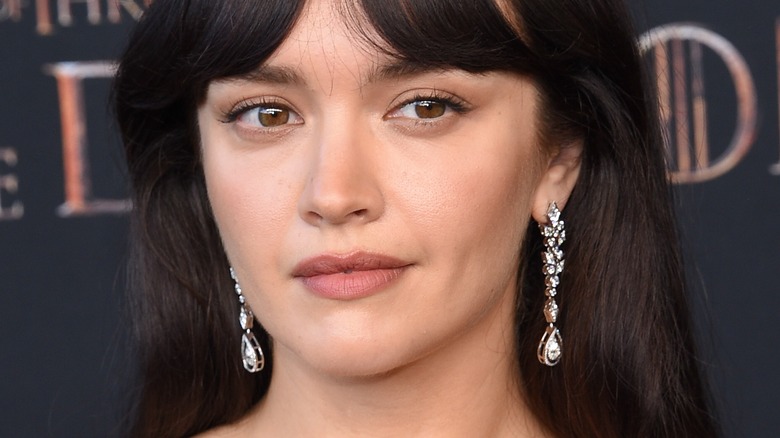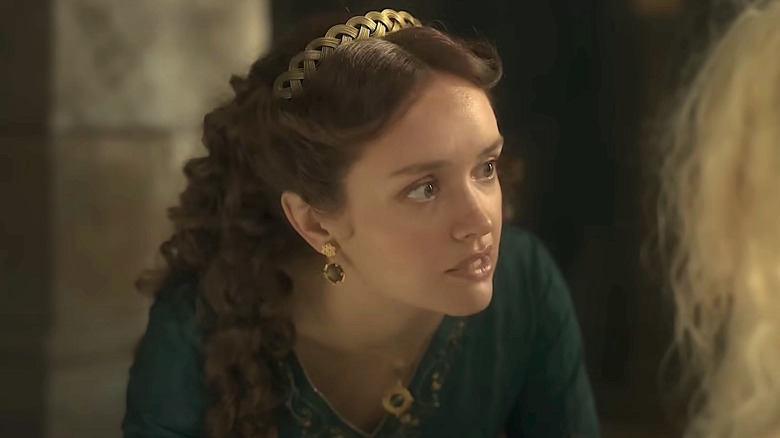How House Of The Dragon's Olivia Cooke Really Feels About Her Character's Politics
You've likely heard by now, but HBO's hotly-anticipated "Game of Thrones" prequel "House of the Dragon" has officially arrived. And yes, the series is already a massive hit for the cable titan, with the network claiming it garnered "the largest audience for any new original series in the history of HBO," according to CNN. It's worth noting, of course, that "House of the Dragon" premiered with the luxury of a substantial built-in audience, so make of those viewership numbers what you will.
That being said, viewers have clearly found a lot to love in the prequel series so far, which explores the reign of the dragon-riding Targaryen faction two centuries prior to the events of its predecessor. And it's clear from the show's first episode that even centuries prior to the "GoT" chaos, a woman still couldn't get a fair shake in the Seven Kingdoms. According to recent comments to Vogue from "House of the Dragon" star Olivia Cooke, that fact will be central to the series' narrative, "It's centered around two women who are pitted against each other partly because they are actually stronger together—they are used as pawns in this patriarchal society," she said. "And it's so rotten how much it mirrors what is going on right now in 2022."
Modern societal similarities aside, Cooke concedes the women of note are indeed working on opposite ends of the patriarchy. And it turns out the actor's own beliefs are not entirely aligned with that of her own character.
Cooke found plenty of intrigue in playing someone opposite her own beliefs on House of the Dragon
If you've yet to catch up with "House of the Dragon," Cooke portrays Alicent Hightower in the series, who happens to be the daughter of Hand of the King Otto Hightower (Rhys Ifans). That status, of course, keeps her in close contact with all the key players in "House of the Dragon," ensuring Alicent herself may play a major role in the carnage to come.
But as Cooke noted in her interview with Vogue, Alicent is essentially a willing pawn in the patriarchal game when the series opens, a fact that put the character wholly at odds with the actor's own political beliefs. "I'm such a staunch feminist," Cooke stated, adding, "and to play someone who—to put it mildly—believes in tradition and has been molded and groomed by her father to be a pawn in his political ambitions was really interesting."
In what could be perceived as a mild spoiler, Cooke went on to say that later in the season, her character has some potentially explosive realizations about her own place in the game, and indeed, the influence she comes to have over those in the kingdom's inner circle. It seems Cooke herself may have found legitimate intrigue in portraying a once subservient woman who comes to understand how much power she can truly wield even within a fiercely patriarchal system. Just how far Alicent will bend her beliefs to wield that power on "House of the Dragon" remains to be seen. But fans of George R.R. Martin's "Dance of the Dragons" mythos can no doubt attest her power-playing days have likely just begun.

